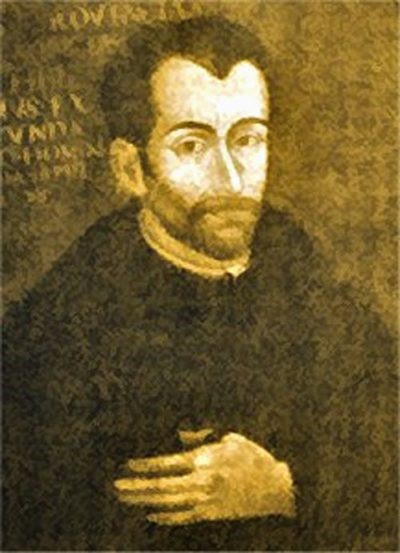– Joaquim Magalhães de Castro
The Jesuit Francisco de Azevedo was to arrive in the city of Tsaparang on 25 August 1632 and would remained there until 4 October, when, in the company of João de Oliveira, he took on a new route to Leh, the capital of Ladakh with the intention to meet the local king. The two Portuguese arrived at Leh on 25 October and were soon received by the Tibetan monarch. They would again earn the honor of an audience five days later.
On November 7, instead of returning to Tsaparang, Azevedo and Oliveira choose to go to India via Kashmir, thereby inaugurating a new route to Tibet. That same month, João Cabral leaves Shigatse on the direction to Hugli.
Early in 1633 Andrade wrote a letter to Rome, this time telling of the unfortunate events of Guge, and of the regime of guarded residence lived by the mission priests. Free of his provincial duties, António de Andrade asks to return to Tibet.
A year later, as he prepares to leave in the company of six other Jesuits, Andrade is promoted to Visitator for Japan and China, a role he would never play as he died in Goa on March 16. He was reportedly poisoned by a certain individual that Andrade was planning to denounce to the Holy Office. Dating from 1675, there is in the Jesuit Archive of Prague an allegorical depiction of the death by poisoning of Father Andrade extracted from a Jesuit martyrology, an interesting print by Mathias Tanner.
In the spring of 1634, the Spanish Nuno Coresma heads the team formerly met by Andrade, but two of the members die along the way near Agra, and Coresma follows Ambrósio Correia to Tsaparang, where they replace some of the priests who took the opportunity to return to Goa. This was the case of Father Alan dos Anjos.
In August of that year, a report on the Tibetan mission by Coresma was sent and co-signed by Correia and the pioneer Manuel Marques – already the most experienced missionary in Tibet – followed by a new letter to Rome.
By late summer, Coresma and Marques would be deprived of their liberty, but sometime in November they were leaving for Goa, as Alvares Tavares, the new provincial of Goa, had ordered the priests to leave the kingdom of Guge. Coresma and Marques arrive in Agra on December 11 and three days later write a letter stating the forced abandonment of the mission.


 Follow
Follow


